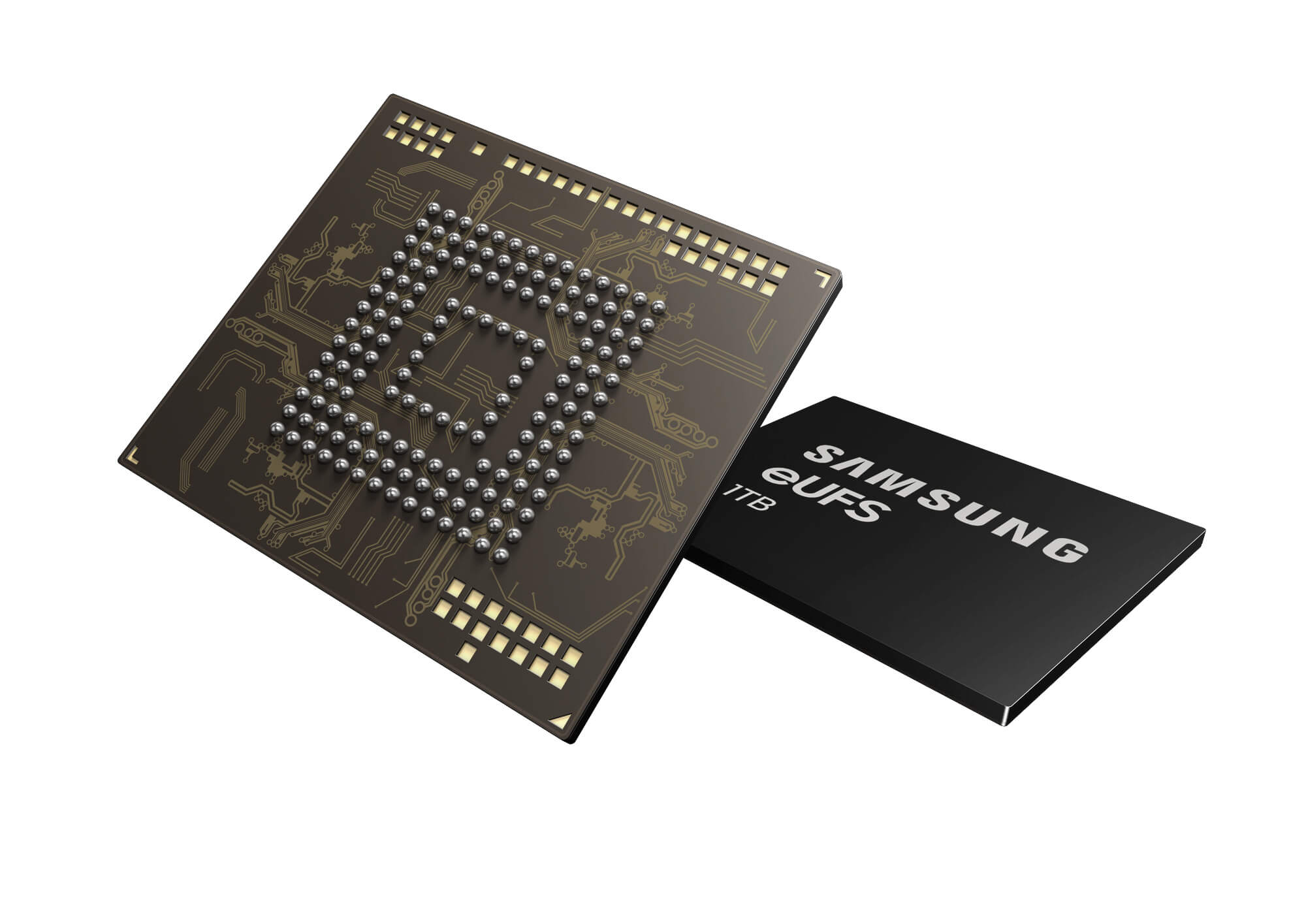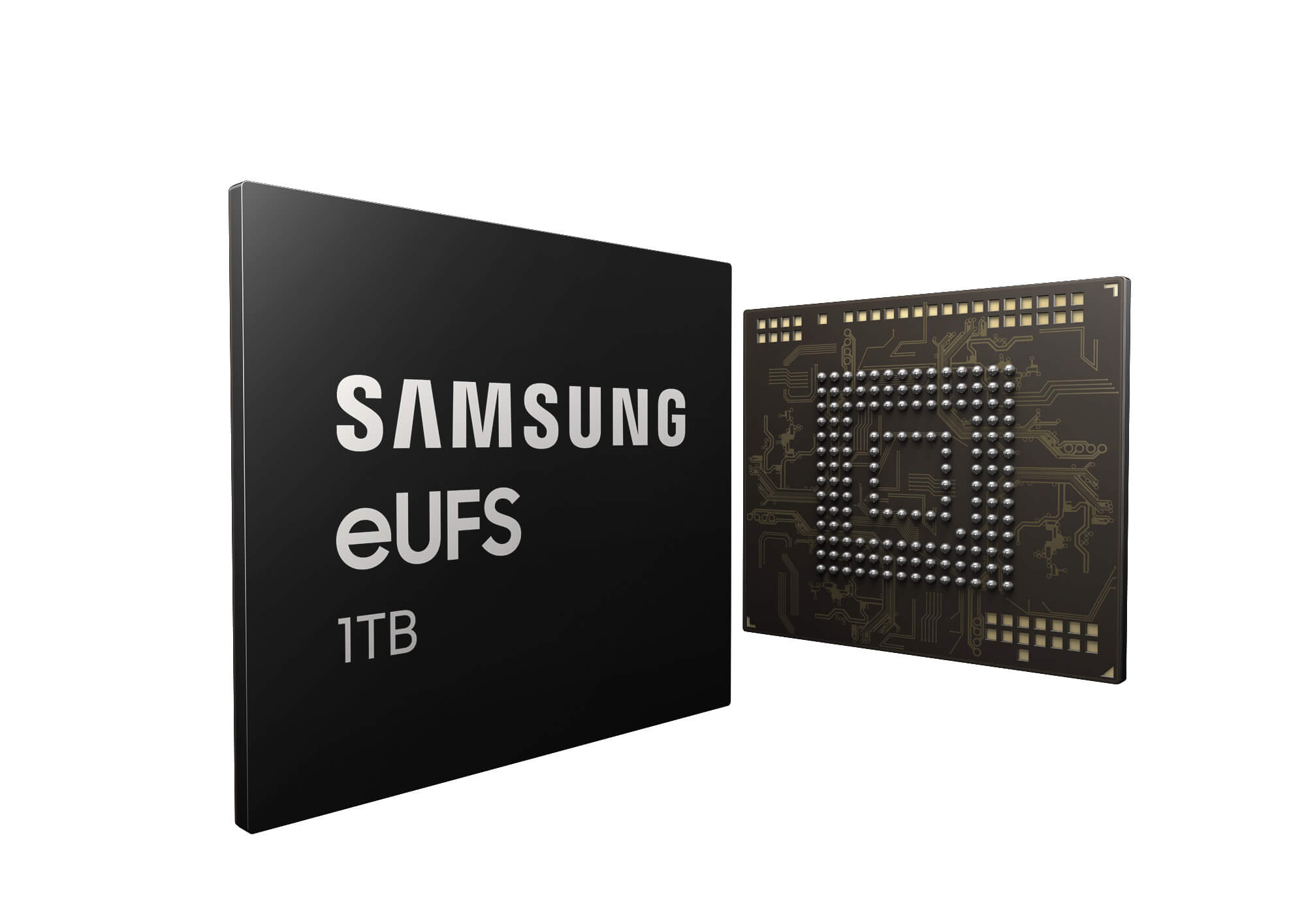Something to look forward to: Flagship smartphones will soon be receiving 1TB of internal storage, breaking the long awaited barrier. Aside from general performance improvements, shooting video at high frame rates will be significantly easier.

While Apple and Google are busy pushing cloud storage services for your mobile devices, Samsung has been developing the next generation of physical storage. After a number of people have questioned what Galaxy Note 9 users need 512GB of storage plus expandable storage via microSD cards, Samsung has now announced its fifth-generation V-NAND that arrives on 1TB eUFS chips.
Retaining the same package size as the previous generation 512GB chip, the new 11.5mm x 13mm chip is created from 16 layers of 512-gigabit V-NAND. A brand new custom flash memory controller brings out industry leading performance.
Four years ago, the first embedded Universal Flash Storage chips begun surfacing as 128GB module. Although they were relatively fast at the time, read and write speeds have more than doubled since then. Samsung is claiming sequential read speeds of up to 1,000 MB/s, or twice what a mediocre 2.5-inch SATA SSD will do. Sequential writes clock in at 260 MB/s. Random reads are 38 percent faster on the 1TB variant compared to the older 512GB chip.

In Samsung's marketing speak, random writes are "500 times faster than a high-performance microSD card." Although this is hardly a useful benchmark to compare to, the important thing to note is that fast random writing allows for shooting of video with higher frame rates. Continuous video at 960 frames per second will be much more practical with as much as 1TB of storage available.
According to Cheol Choi, VP of Memory Sales & Marketing, "the 1TB eUFS is expected to play a critical role in bringing a more notebook-like user experience to the next generation of mobile devices." As smartphones become even better, opportunities to replace tablets and traditional laptops is that much greater. Concepts of laptop shells powered from smartphones have been popping up sporadically over the past few years.
https://www.techspot.com/news/78498-samsung-debuts-1tb-flash-storage-chips-mobile-devices.html